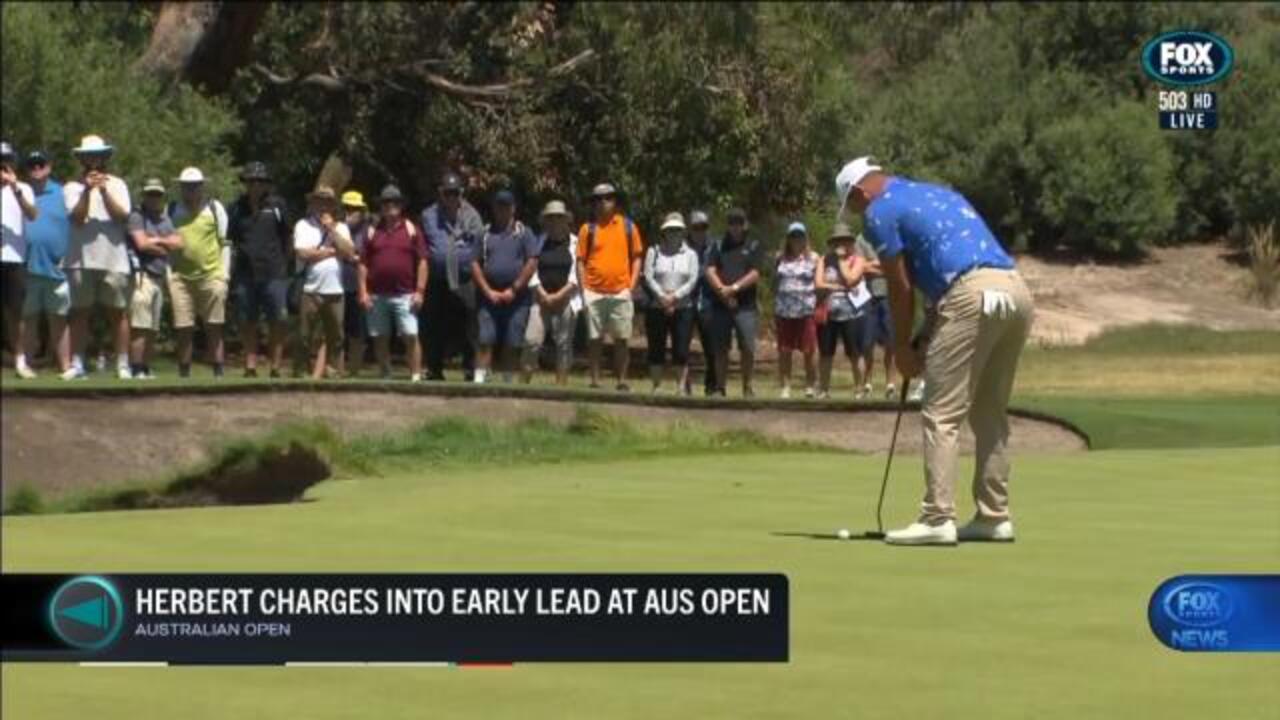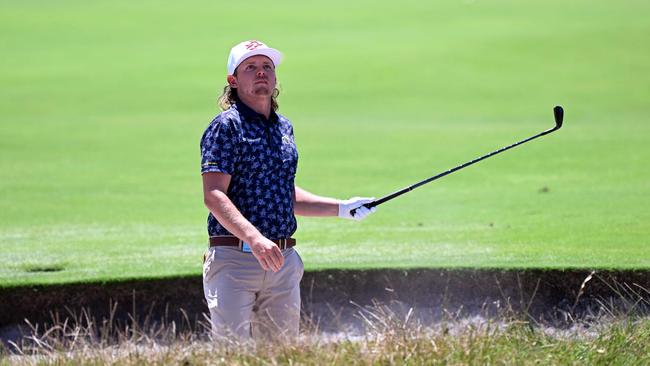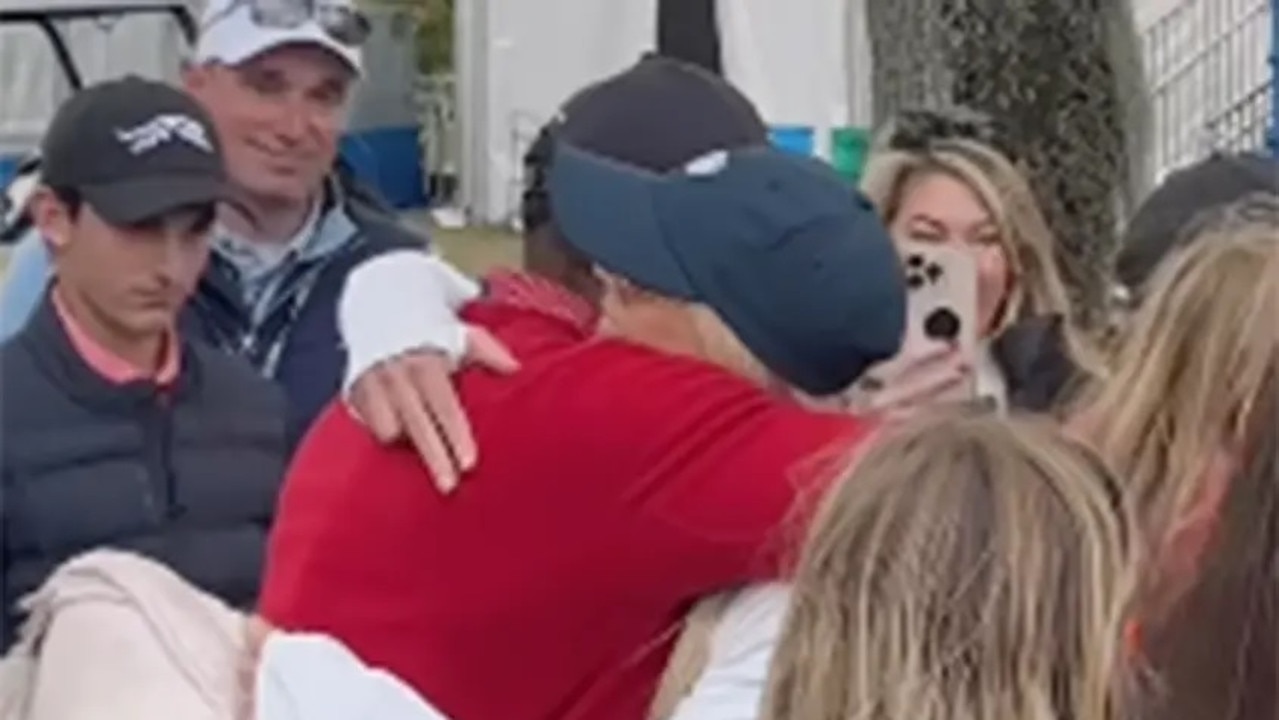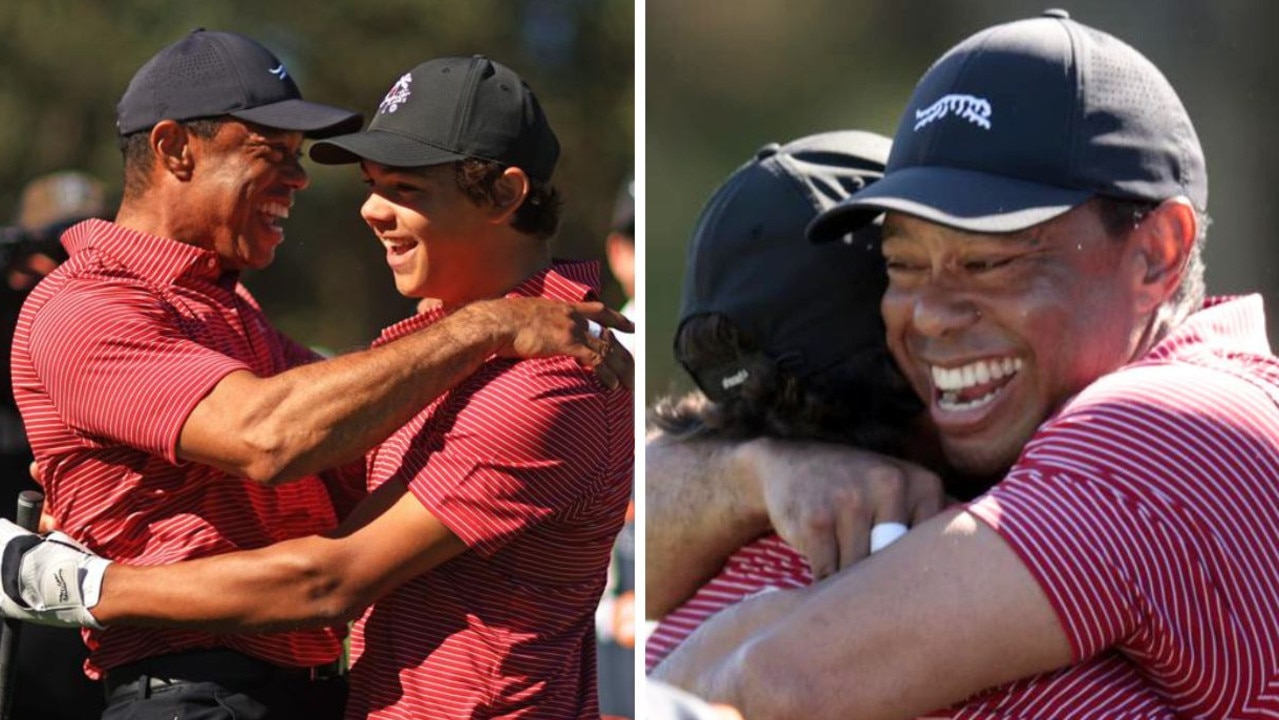Cameron Smith says being put on the clock for the second time hurt him at Kingston Heath
Cam Smith was put on the clock for slow play for the second time in two events while playing with the same person and says it impacted his Australian open campaign.

Golf
Don't miss out on the headlines from Golf. Followed categories will be added to My News.
Beaten but not broken, Cam Smith says he felt like he was “running around” during a disastrous back nine at Kingston Heath on Friday which cruelled his Australian Open hopes after being put on the clock for the second time in as many events.
Smith went from outright second, after opening with an eagle and a birdie, to a tie for 18th and eight shots behind Lucas Herbert after coming home with three bogeys and a double amid a raft of wayward shots while being watched by officials.
Conceding conditions became tougher, with stronger winds drying out greens becoming hard, just like he wanted, the British Open champ said there was a “common denominator” in the clock warnings which impacted his play as he carved out an even-par 72,.

Smith was tapped while playing with Elvis Smylie in the final round of last week’s PGA in Brisbane, and again playing with the left-hander, who carded a stunning eight-under round of 64, on Friday.
“I don’t get put on the clock too often. I feel like we do a pretty good job,” he said,
“There is a common denominator there that’s a little bit slower, but, yeah, no, it’s not something I like, because I feel like I’m a pretty fast place player as it is.
“So being put on the clock is just another thing ... I feel like I do my best out there to play as quick as I can, and then I feel like I’m running around.”
Without naming Smylie, who was a former holder of a Cam Smith scholarship, Smith said he wouldn’t talk to the 22-year-old because “its not my job to”.
Smylie said it was the “group” that was put on the clock and that he did a “good job myself” of keeping up with pace of play.
Smith didn’t rule out a Saturday bounceback despite being brought back to earth having been outspoken about the soft nature of the courses being used before the event started.
While the traditional defences for the sandbelt masterpiece, baked-hard surfaces and strong winds, weren’t at their devilish best, the Friday Melbourne sun, and increasing breeze, combined to slow him down.

Going into the back-nine, doubt over the attack-mode he started the day with, having bemoaned easy pins and soft surfaces for the opening round, crept in, and mistakes followed.
When the British Open champ asked “where did it go?” after his second shot on the 13th hole disappeared into a tree, having made bogey on the 12th after hitting his second in to the scrub, it was clear the Open wasn’t the event it was the day before.
The ball was in a bush, Smith chopped it out, and made par. But two par fives on the back-nine came and went without a birdie, a cardinal sandbelt sin.
As the “thud” of balls landing on greens became more prominent, Smith’s game fell apart, as the “hard and fast” test he’d called for began to take a toll,
Smith had to take an playable lie after another errant dive on the 16th, his dream title quests not completely dissolving, but becoming more work that he’d imagined after his blistering start after it turned in to a double-bogey.
But he’s not done,
“It’s rough, but, you know, there’s still a lot of golf to be played, and I think that’s the way we got to look at it,” he said.
“And, you know, be aggressive out there, but also be quite patient, because there is a lot of birdies out there.”
Originally published as Cameron Smith says being put on the clock for the second time hurt him at Kingston Heath



